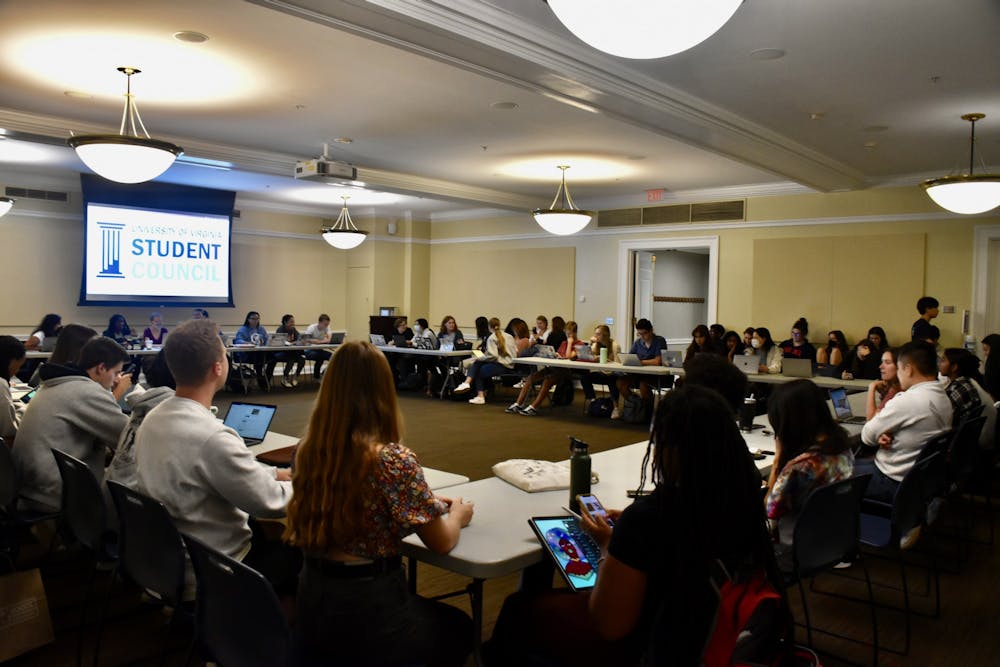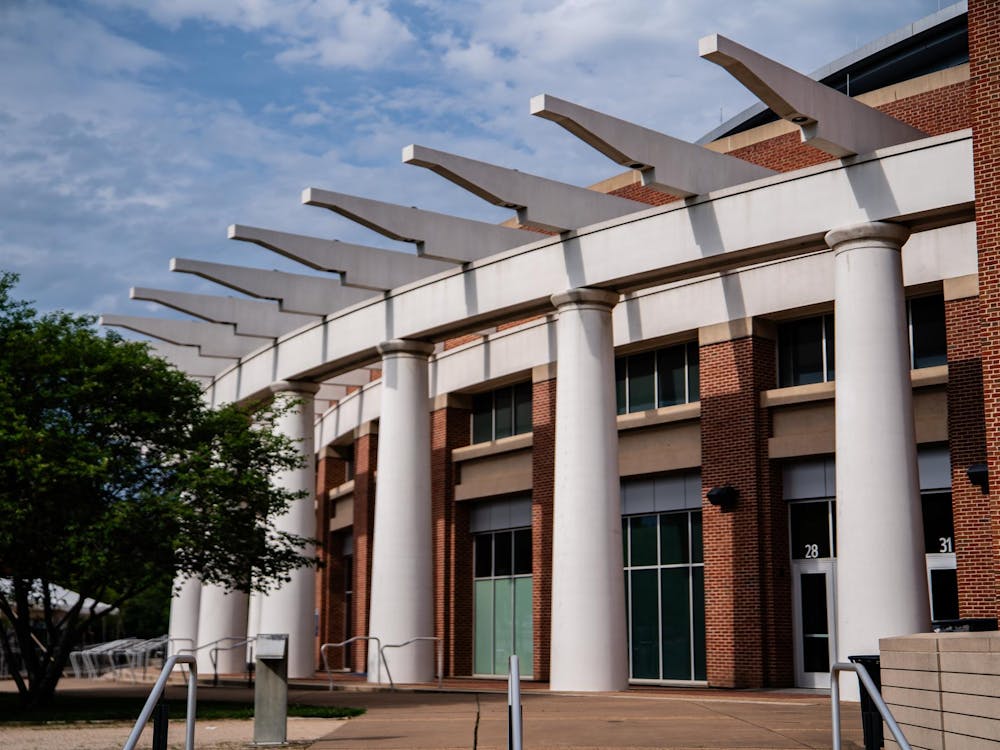Student Council heard a presentation from Jaden Evans, vice president for administration and fourth-year College student, regarding a proposed increase to the student activities fee Tuesday evening to source public feedback.
All students currently pay $50 yearly for this fee, which is used to financially support student organizations. Active CIOs and Special Status Organizations can request SAF funding for expenses incurred during the school year or during the prior school year, including food, office supplies, guest speakers and more.
For fiscal year 2023, Student Council will receive a projected $1.8 million in eligible funding requests from CIOs. This number is based of allocations during the 2021-22 school year, when Student Council received $2.1 million in funding requests, $1.75 million of which was eligible for SAF funding. Of that, Student Council allocated $1.07 million in SAF funding and a total of $863,740 was spent by CIOs.
The Board of Visitors created the fee — then $12 — in 1971. Since then, the fee primarily increased and has remained $50 since 2013. This represents the longest time that the fee has remained stagnant since its first proposed increase.
Evans suggested three ways of increasing the fee. The first would increase the fee by $2 for the 2023-24 academic year, followed by an automatic fee increase of $4 for the next four tuition and fee cycles. The second solution would increase the fee by $6 during the 2023-24 academic year and later $6 for the 2024-25 academic year, after which the fee would be tied to the Consumer Price Index to account for inflation. A third proposed solution would increase the fee by $16 next year and then tie the fee to the CPI.
Evans identified two central justifications for proposing this increase — the impact of inflation on the actual value of the fee and the gap between CIO funding requests and the funds Student Council can provide.
“[Between] what was being requested and what we were able to meet, that gap got as wide as a million dollars some years,” Evans said “That shows a very clear demand from student organizations that they want more funding than we're able to provide with the current revenue stream from the current fee level.”
In 1971, $12 held as much purchasing power as about $87 does today. This makes it difficult for Student Council to achieve its goal of fulfilling 80 percent of CIO funding requests with a $50 fee, Evans said. The current SAF provides Student Council with $750,000 in funding, yet Student Council will likely need to allocate at least $1 million — leaving at least a $250,000 gap in funding.
Both Evans and Ceci Cain, president of Student Council and graduate student, said raising fees would require a higher financial contribution from students. However, the pair see an increase in funds as moderate and emphasized that SAF is one of the fees that returns directly to students.
“This is a fairly modest fee increase, and it's also the one that goes back directly to students,” Cain said. “We’re actually hoping to use this fee to be able to provide the infrastructure and resources that especially low-income students need to be able to stay at this University, so we see this as something that will have a net positive impact on all types of students at the University.”
The Board of Visitors will make the final decision on whether or not to increase the fee, but Cain and her administration will work with the Student Activities Committee to create a proposal to present before the tuition and fees subcommittee. The subcommittee will then present to the Board at the December 4 meeting.
Student Council will have a comment box open on their website from Sept. 28 to Oct. 5 for students who have feedback regarding the proposed fee increase. The representative body will consider the proposal at a special session meeting soon.
The representative body also passed a bill to appoint third-year College student Christian Ephriam as director of coalition engagement after Ephriam addressed concerns that he had not met individually with members of the Jewish community.
Student Council holds general body meetings weekly at 6:30 p.m. in the South Meeting Room of Newcomb Hall.
CORRECTION: A previous version of this article misrepresented the history of the SAF fee increases as well as Student Council's predicted funding requests for the upcoming year. The article has been updated to reflect these changes.







